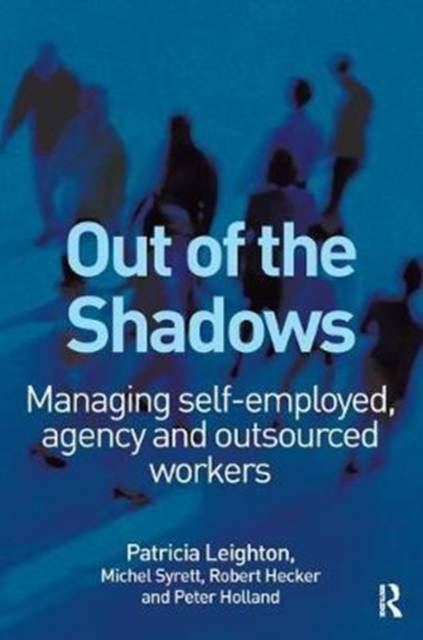
- Afhalen na 1 uur in een winkel met voorraad
- Gratis thuislevering in België vanaf € 30
- Ruim aanbod met 7 miljoen producten
- Afhalen na 1 uur in een winkel met voorraad
- Gratis thuislevering in België vanaf € 30
- Ruim aanbod met 7 miljoen producten
Zoeken
Out of the Shadows
Michel Syrett, Patricia Leighton, Robert Hecker, Peter Holland
Hardcover | Engels
€ 381,95
+ 763 punten
Uitvoering
Omschrijving
Over half of all people working on behalf of any given organization are typically not their own employees. Some are freelance contractors working in their own right. A significant proportion is employed to provide these services by another firm, under agency or outsourcing service agreements. The services they perform under these agreements are often vital in supporting the organization's customer relationships, reputation and brand identity. Yet, remarkably, little attention has been paid to how thesenon-employees are managed, motivated and meaningfully engaged. Management protocol generally sees them as outside the organization's remit or control. The law paints them as victims. This ground-breaking book challenges both these assumptions. Through a combination of pioneering legal analysis and rigorous case-study research, it demonstrates that non-employees are often the organization's most important hidden resource. Patricia Leighton and her collaborators highlight the limited good practice that is available, based on examples in large corporations, public sector organizations and smaller firms in a variety of countries. More importantly she clearly sets out the issues and imperatives employers should address, supported by new management concepts and models of effective practice developed specifically for the book. Far from being victims, she argues, non-employees often choose flexible working patterns for their own intrinsic ends and have ambitions, career aspirations and workplace needs that can be responded to and exploited by forward-looking employers.Looking at the role they now play, these people are no longer marginal, atypical or peripheral as they are still termed and regarded by both legal and management practitioners. They are, however, still in the shadows in terms of the literature available on how best to de
Specificaties
Betrokkenen
- Auteur(s):
- Uitgeverij:
Inhoud
- Aantal bladzijden:
- 296
- Taal:
- Engels
Eigenschappen
- Productcode (EAN):
- 9781138433526
- Verschijningsdatum:
- 15/11/2017
- Uitvoering:
- Hardcover
- Formaat:
- Genaaid
- Afmetingen:
- 156 mm x 234 mm
- Gewicht:
- 589 g

Alleen bij Standaard Boekhandel
+ 763 punten op je klantenkaart van Standaard Boekhandel
Beoordelingen
We publiceren alleen reviews die voldoen aan de voorwaarden voor reviews. Bekijk onze voorwaarden voor reviews.








